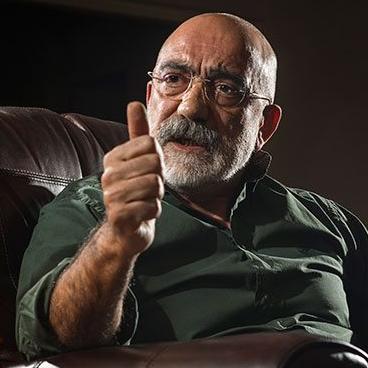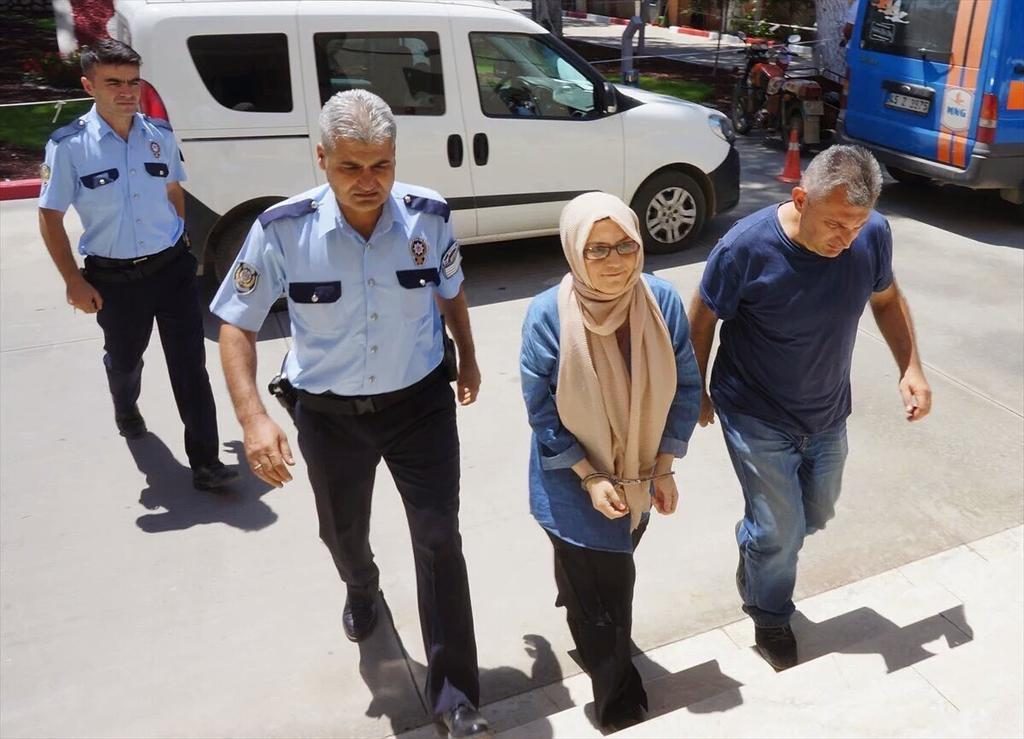8 May 2017 | Media Freedom, News and features, Turkey
[vc_row][vc_column][vc_column_text]

Journalist Ahmet Altan is charged with inserting subliminal messages in support of the failed 15 July coup in Turkey.
Nine months. That’s how long brothers Ahmet and Mehmet Altan have been in pre-trail detention in Turkey. Prosecutors are demanding multiple life sentences for the brothers, who will face their first day in court on 19 June.
“The case against Ahmet and Mehmet Altan is deeply troubling. The ongoing judicial harassment of the Altans and other journalists puts ‘democratic’ Turkey in the same camp as some of the world’s most egregious dictatorships. The post-coup crackdown on freedom of expression and the press must be rolled back,” Melody Patry, head of advocacy, Index on Censorship said.
Ahmet Altan has written for several of the country’s most influential newspapers. He and his brother Mehmet, an academic, were arrested and are being held on suspicion of “spreading subliminal messages”, relating to an appearance Ahmet Altan made on a television talk show the night before the 15 July coup attempt.
Ahmet Altan is one of Turkey’s top journalists, having worked in every position from reporter to editor-in-chief at several newspapers, as well as a producer of television news. He was a columnist for daily newspapers including Hurriyet and Milliyet, and in 2007 he started Taraf, an opposition daily. In 2008 he was charged with “denigrating Turkishness” after he wrote an article dedicated to the victims of the Armenian genocide. He is also considered one of Turkey’s finest novelists, with his most recent book, Endgame, having been published last year.
Mehmet Altan is a professor at Istanbul university, where he has worked for 30 years. A vocal supporter of democracy, he has often called for Turkey to establish its republic on human rights, rather than religious or ethnic identity. He has written several books about politics in Turkey.
The pair were arrested in an early morning raid on 10 September. Ahmet had appeared on a talk show on the Can Erzincan television channel on 14 July, where he is accused of sending messages to viewers to support a coup. The channel has since been shut down. It was perceived by authorities to have been supportive of the cleric Fethullah Gulen, who the government blames for the coup.[/vc_column_text][vc_column_text]
TAKE ACTION
Send a letter of support to Ahmet and Mehmet Altan.
Show your solidarity with the Altans by letting them know the world is watching their case.
Tweet Turkey’s president:
[socialpug_tweet tweet=”.@RT_Erdogan Turkey must end crackdown on #mediafreedom #FreeTurkeyMedia #journalismisnotacrime #AhmetAltan #MehmetAltan” style=”2″ remove_url=”yes” remove_username=”yes”][/vc_column_text][vc_column_text]

Turkey Uncensored is an Index on Censorship project to publish a series of articles from censored Turkish writers, artists and translators.
[/vc_column_text][/vc_column][/vc_row][vc_row][vc_column][vc_basic_grid post_type=”post” max_items=”12″ style=”load-more” items_per_page=”4″ element_width=”6″ grid_id=”vc_gid:1494246747427-afb47fc0-82c9-2″ taxonomies=”55″][/vc_column][/vc_row]
27 Jul 2016 | Europe and Central Asia, Mapping Media Freedom, mobile, News and features, Turkey, Turkey Uncensored

Büşra Erdal, who surrendered in Manisa, taken to police headquarters in handcuffs.
“It was very, very close,” according to a source who followed the case of columnist and human rights lawyer Orhan Kemal Cengiz. By a hair he had avoided detention. While Cengiz has now been released, he is unable to travel abroad.
During the interrogation, Cengiz had repeatedly been asked about critical tweets he had posted about a year ago. “Those who led the interrogation were utterly hostile, seemingly set for finding a pretext to hold him in custody,” my source said. Cengiz’s friends believe that his impeccable international reputation and his work for the European Court of Human Rights, where he has defended Kurds and even, in a couple of cases, Turkish Islamists against the state, may have saved him from a jail cell.
However, there is nothing to suggest the easing this post-coup witch hunt. Yesterday, the veteran journalist Nazlı Ilıcak was arrested at a police checkpoint in Bodrum and taken into custody. Judicial affairs journalist Büşra Erdal surrendered after she tweeted that she was being punished for her work. Sadly the powerful Doğan Media Group outlets, of which both honourable journalists are affiliated, remained silent. Not a word of support was seen in any of the group’s newspapers.
The only support came from the Enis Berberoğlu, former chief editor at Hürriyet and now MP and deputy of the main opposition Republican People’s Party (CHP), who tweeted: “As their superior once, I was mainly responsible for the stories and the sections that Bülent Mumay and Arda Akın wrote and worked for. I vouch and stand for them.”
Against the backdrop of the authorities’ search for 42 journalists, pro-government media was busy on Tuesday inciting hatred for the columnists and asking for their imprisonment, including the daily Akşam. The pro-Justice and Development Party (AKP) daily Sabah added to the flames by accusing columnists such as Hasan Cemal, Kadri Gürsel, Cengiz Çandar, Perihan Mağden, Mehmet Altan and others of provoking the coup. These journalists and columnists are no longer allowed to express themselves in any media outlet.
Perhaps more than anything else, it was a crucial legal appointment that worried Turkey’s dissident figures in media and academia. In a hasty move, the government named İrfan Fidan as the chief prosecutor for Istanbul. Until Monday, Fidan was a deputy attorney in Istanbul’s Anti-Terror and Organised Crime Unit. What’s most notable, however, is that Fidan was the prosecutor who sentenced Cumhuriyet editors Erdem Gül and Can Dündar to five years and five years and ten months, respectively, in prison. The pair had covered the alleged supply of arms to Syrian jihadist groups by the Turkish secret service.
Academic Esra Mungan and three others who had signed the peace petition for the Kurds clashed were also detained due to his efforts. In another example, Fidan had taken over the case that implicated high-ranking AKP ministers and president Recep Tayyip Erdogan’s family members in corruption. He dismissed all charges.
Many fear, therefore, that his appointment to such a powerful post may come to mean a steep escalation against journalists and scholars in the coming weeks.
All other signs, too, indicate harder times.
On Monday night, in the midst of turmoil, Erdogan ratified the law which, in practice, subordinates the high judiciary to the political executive and immediately after the Board of Judges and Prosecutors, led by the Justice Ministry, implemented a long series of appointments and removals in the Court of Cassation and Council of State.
Erdogan met with two opposition party leaders. CHP and Nationalist Movement Party leaders were invited, but not the third largest elected one, the pro-Kurdish Peoples’ Democratic Party. It was a deliberate choice, raising eyebrows on how serious the ruling AKP is about rebuilding democracy. In addition, Erdogan spoke for a possible extension of emergency rule for an additional three months.
Meanwhile, Turkey will be run by decrees and everybody knows what that means.
A version of this article was originally posted to Suddeutsche Zeitung. It is published here with permission of the author.

Turkey Uncensored is an Index on Censorship project to publish a series of articles from censored Turkish writers, artists and translators.



